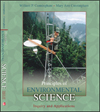Land use and sustainability Land is a resource that is at the center of many of our sustainability debates.
How land should be used is a perennial policy and development problem.
In the United States, the Natural Resources Conservation Service (NRCS) conducts
periodic surveys of land use and agricultural production. The NRCS
web site includes a large collection of mapped data.
1. Click on several themes in the index at the address above. Which topics
would be most useful for providing information about sustainability of land
and water use in the US? What information could you use from the different topics
to support arguments about wise or foolish resource use decisions? Which of
the resources mapped are renewable? Which are nonrenewable?
2. Urban growth into agricultural lands is a problem in many cities. Look at
the maps of acreage conversion
to urban land use, annual rates
of development, and acres
of cropland developed. For each map you can see an enlarged version by clicking
on "Large GIF" just below the map image. Note the dates on the maps and the
meaning of the colors. What do these maps tell about development rates in your
area? How does growth impact sustainability in your area? Which regions are
experiencing the most rapid urban expansion?
Cities and Sustainability The New Colonist is a web site devoted
to making cities more sustainable and more livable. Look at the list of current
featured stories on the web page.
Discuss the following questions with a group of your colleagues:
What are the main themes (transportation? food? housing? energy?)
What important topics are missing?
What are some of the recommendations for change in the stories on the main topics?
Based on your understanding of sustainability, economics, and resource use,
do you think the recommendations in these articles are practical? If so, what
could you do to help pursue recommended changes? If not, how could conditions
be changed to make the recommendations more practical? | 


 2002 McGraw-Hill Higher Education
2002 McGraw-Hill Higher Education